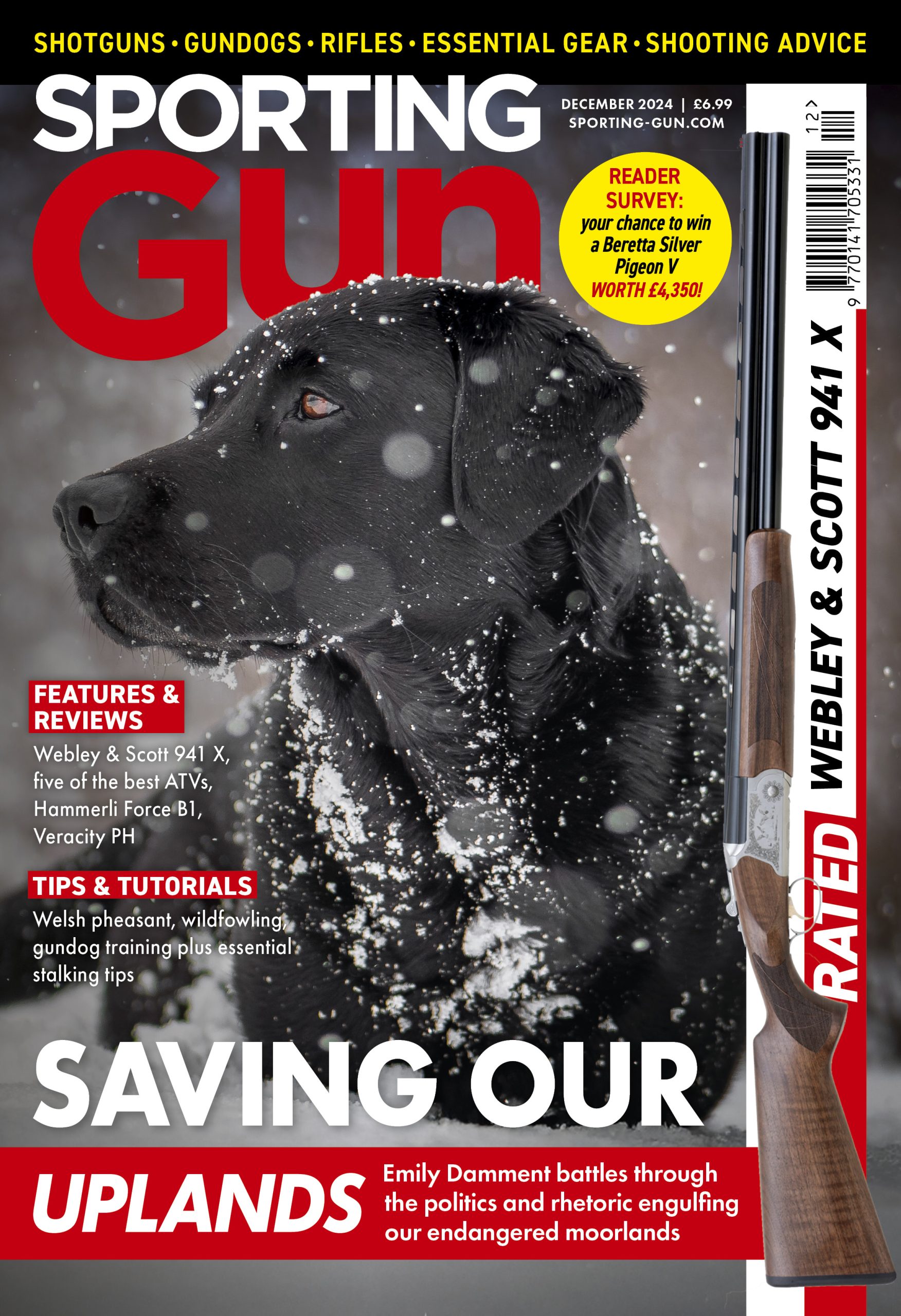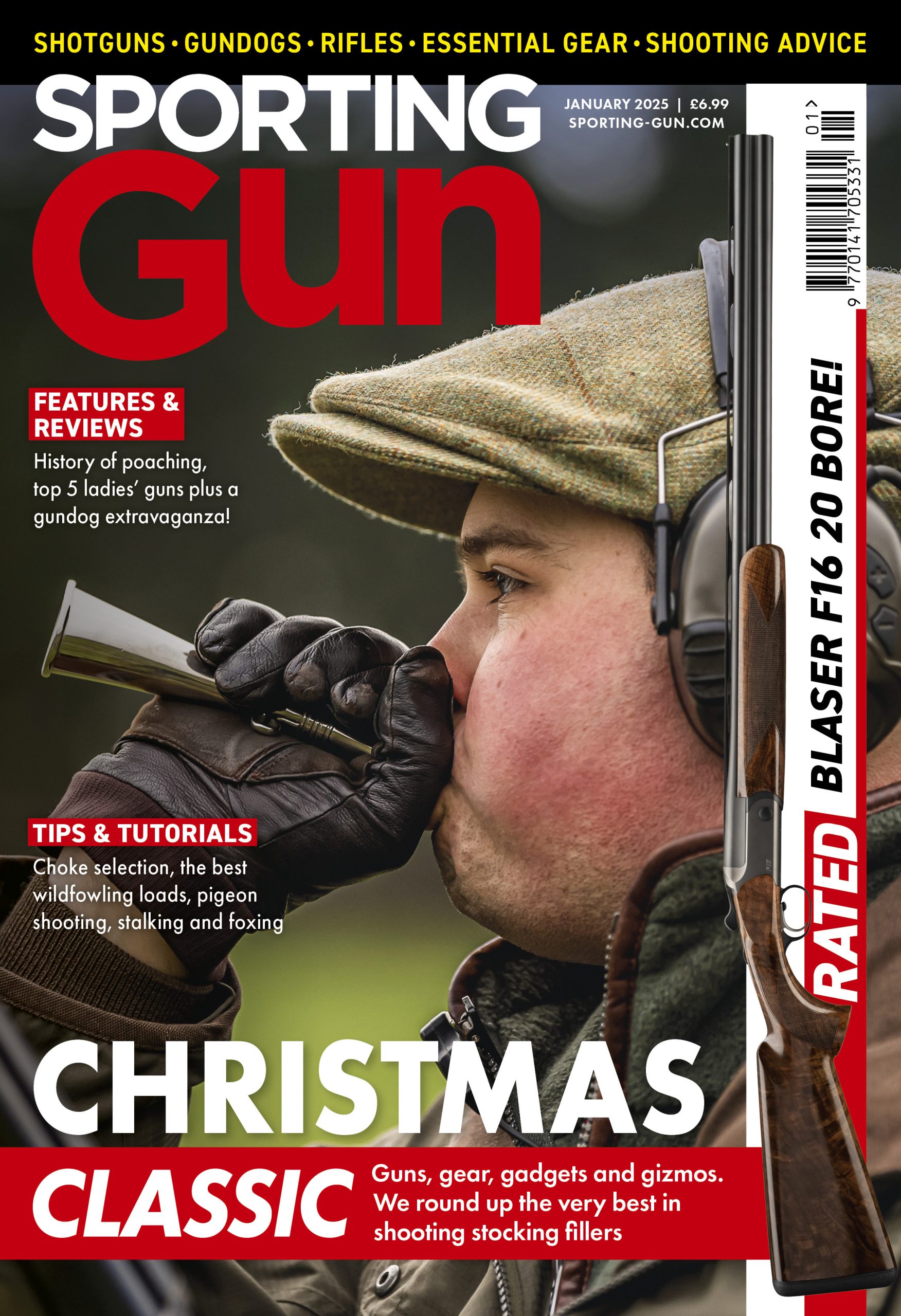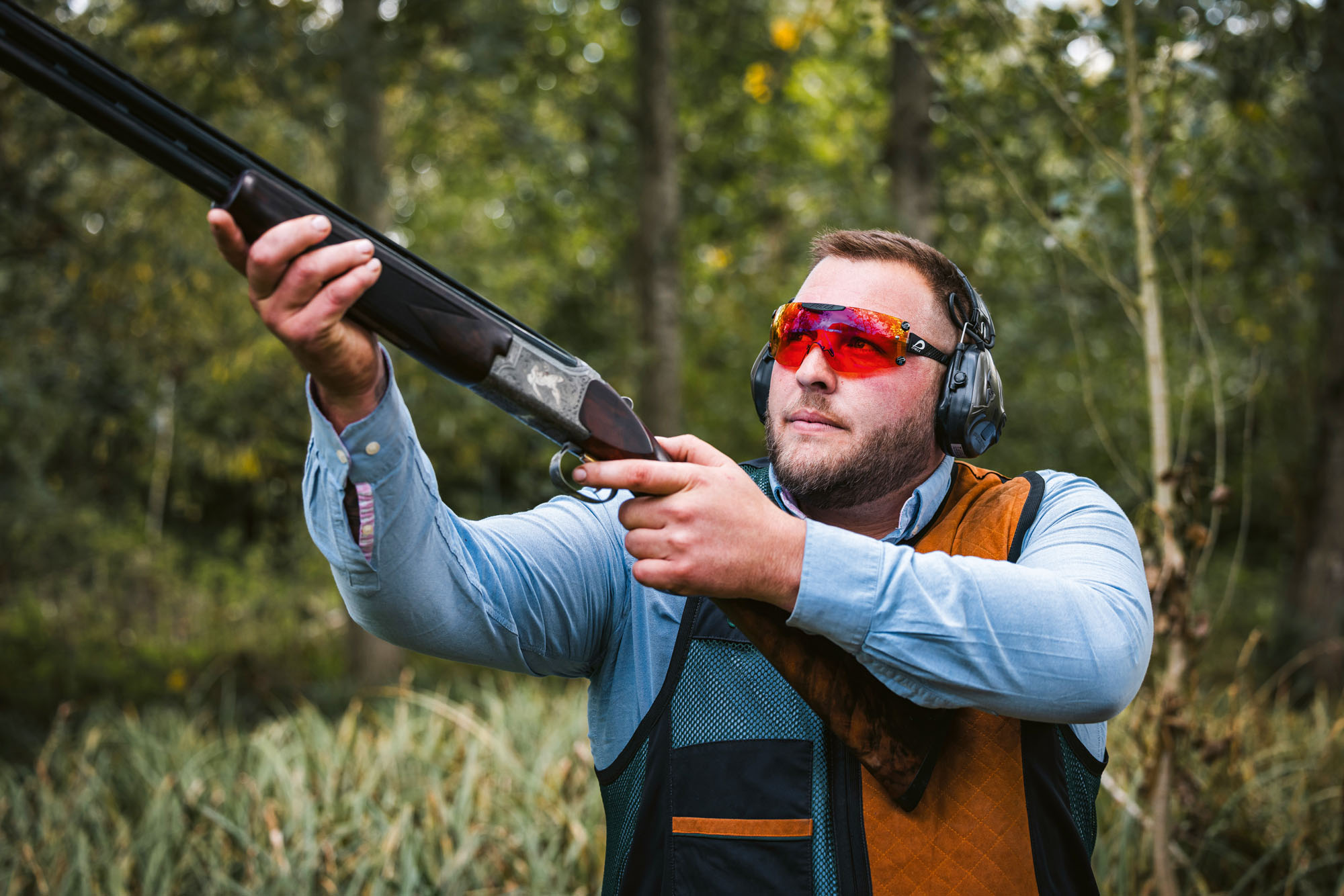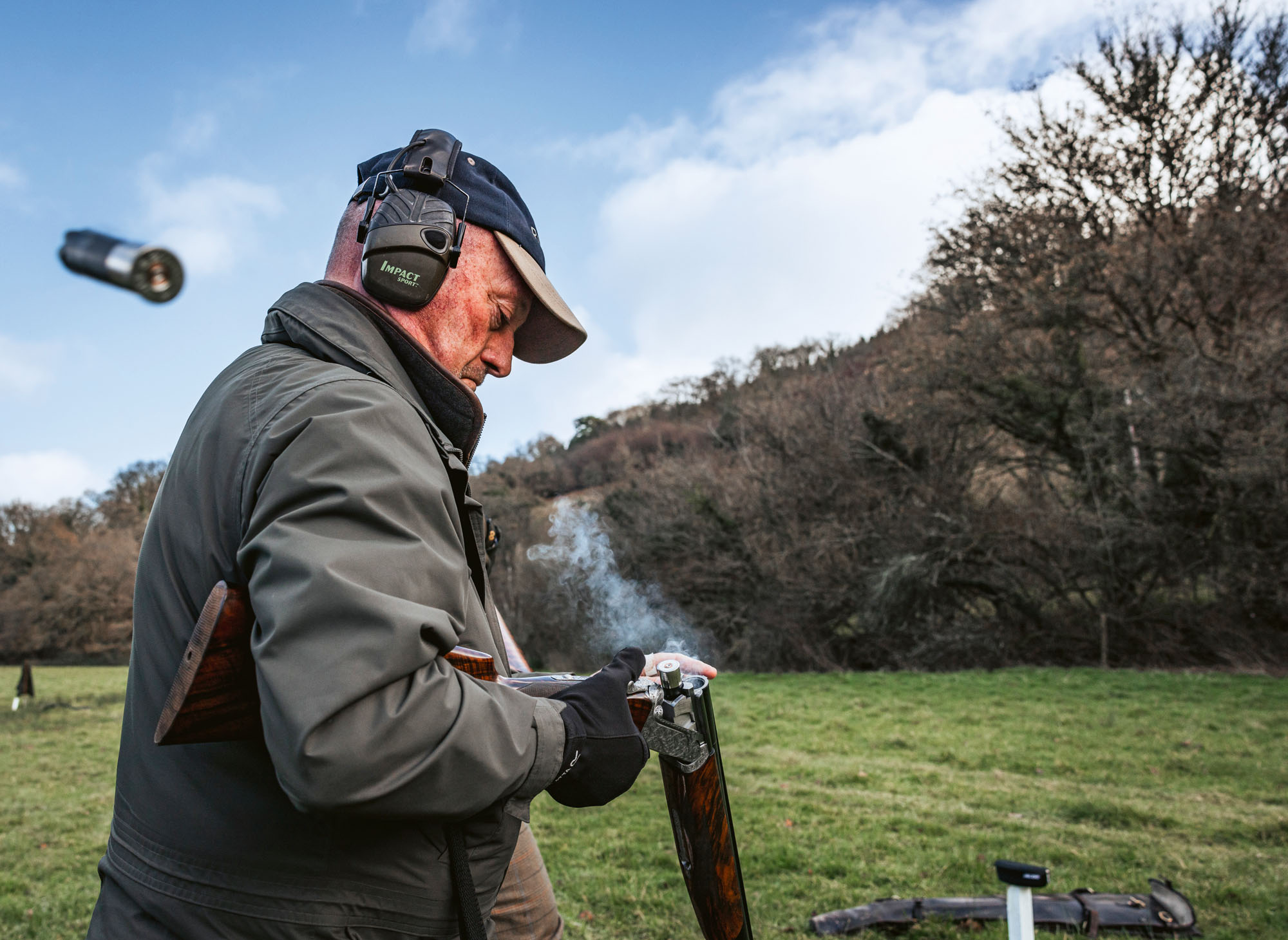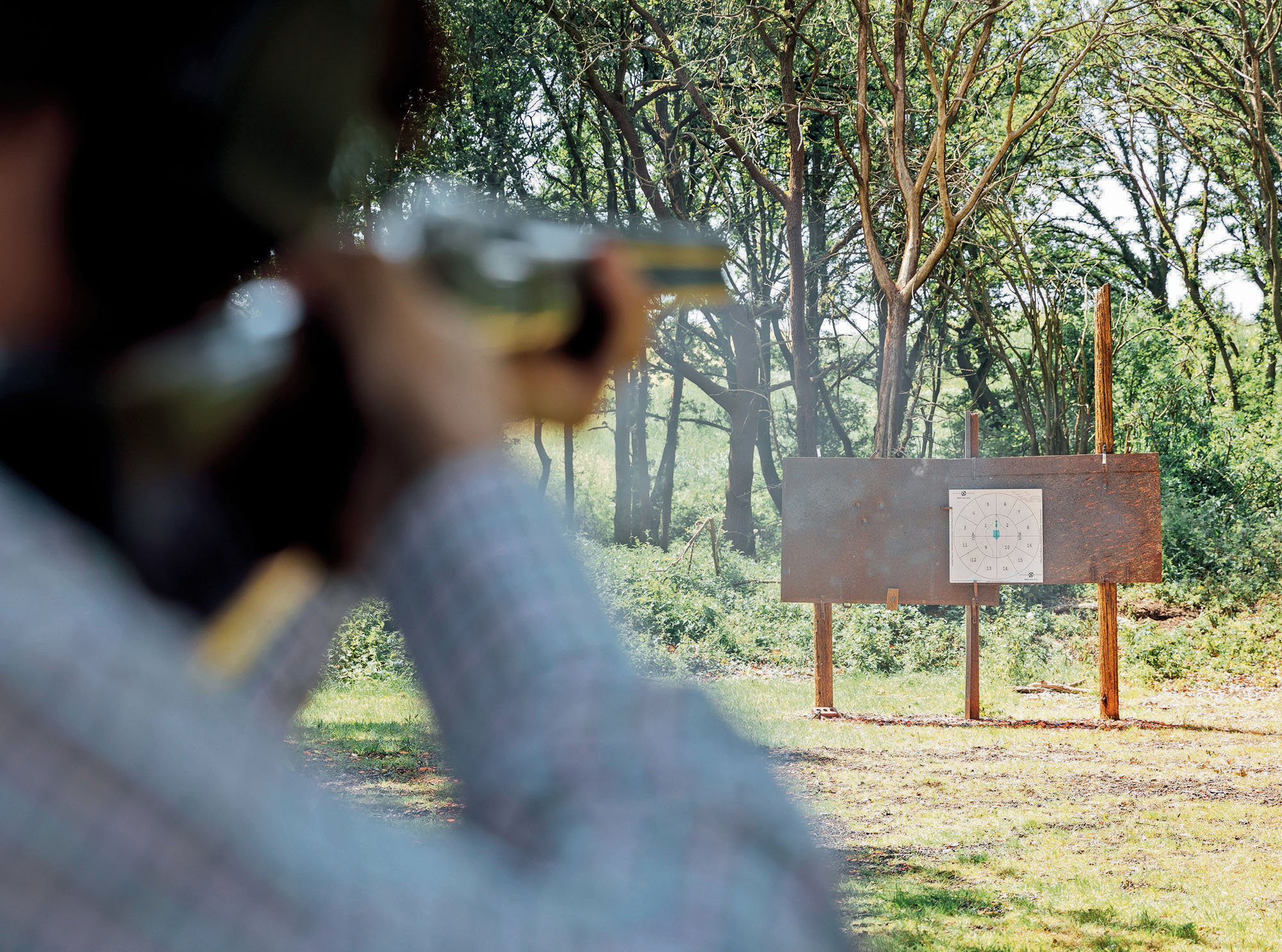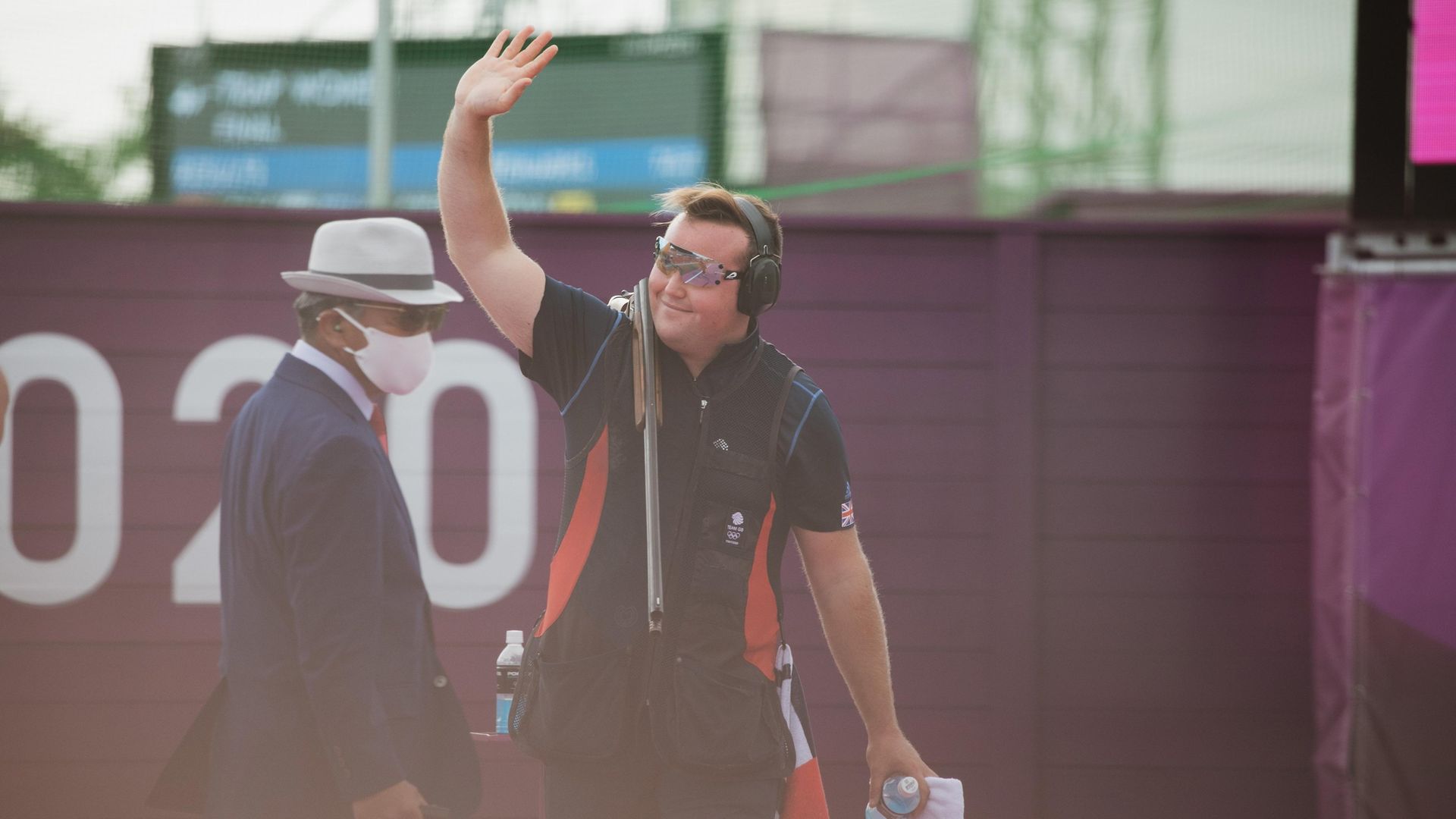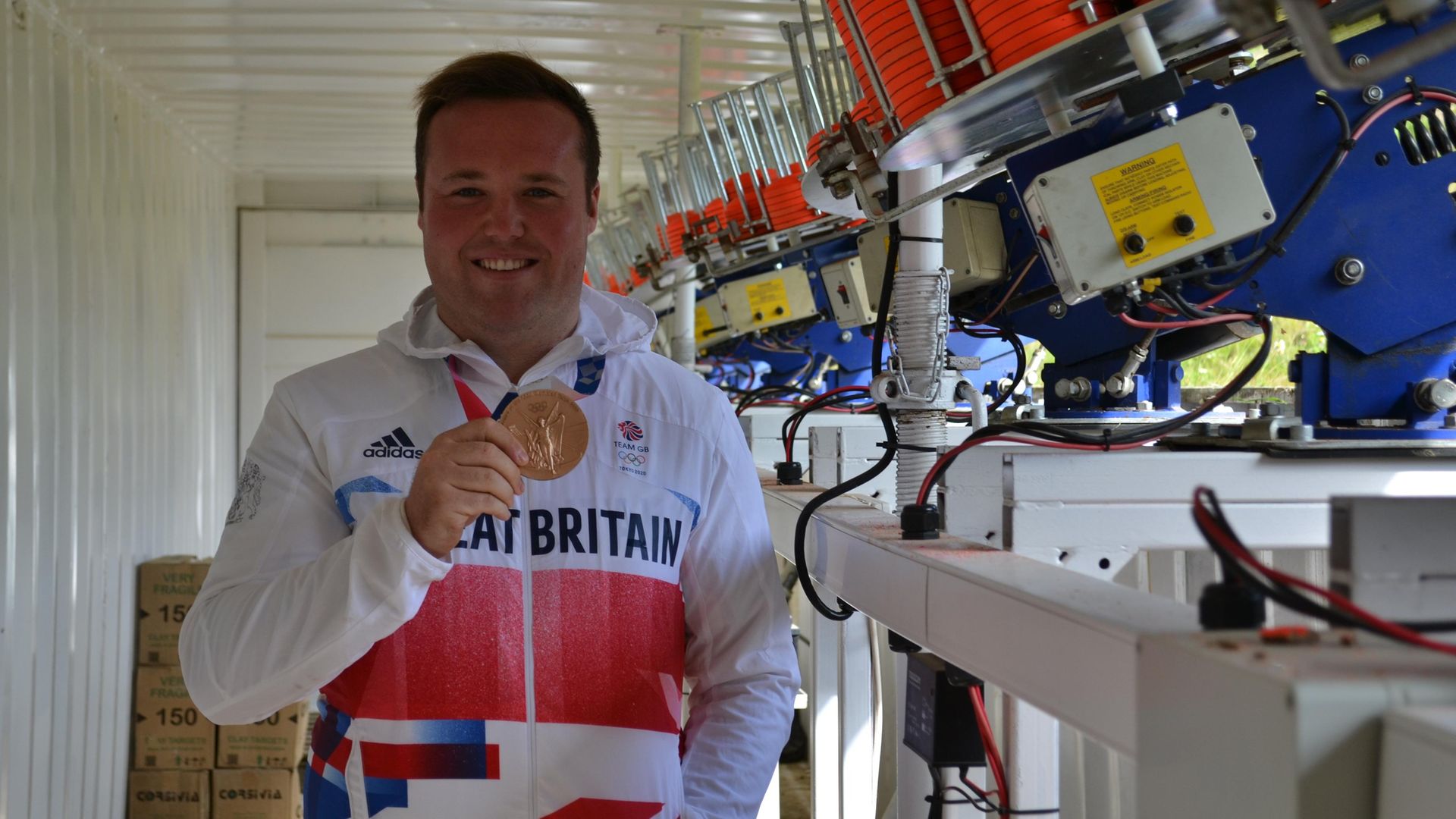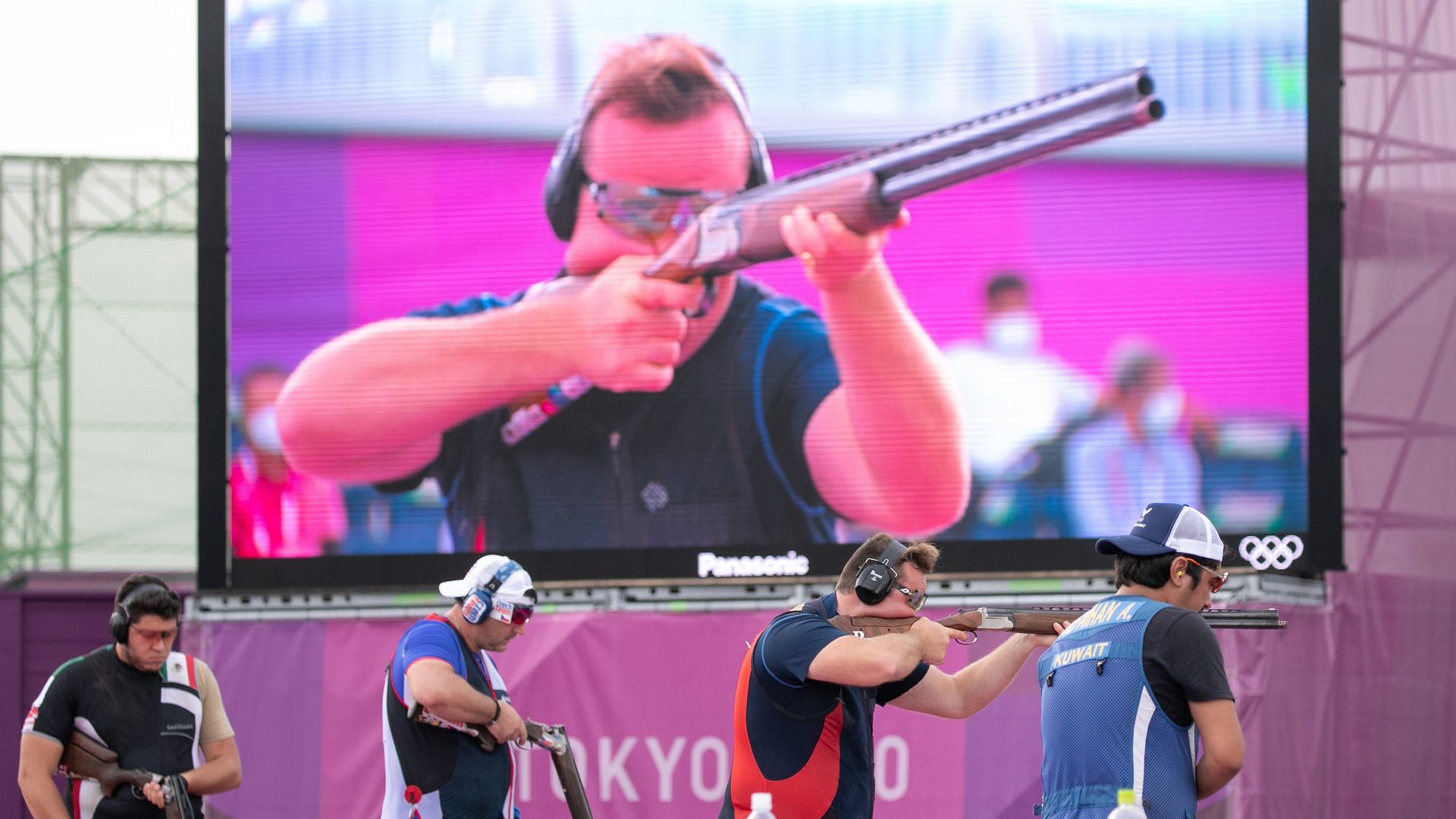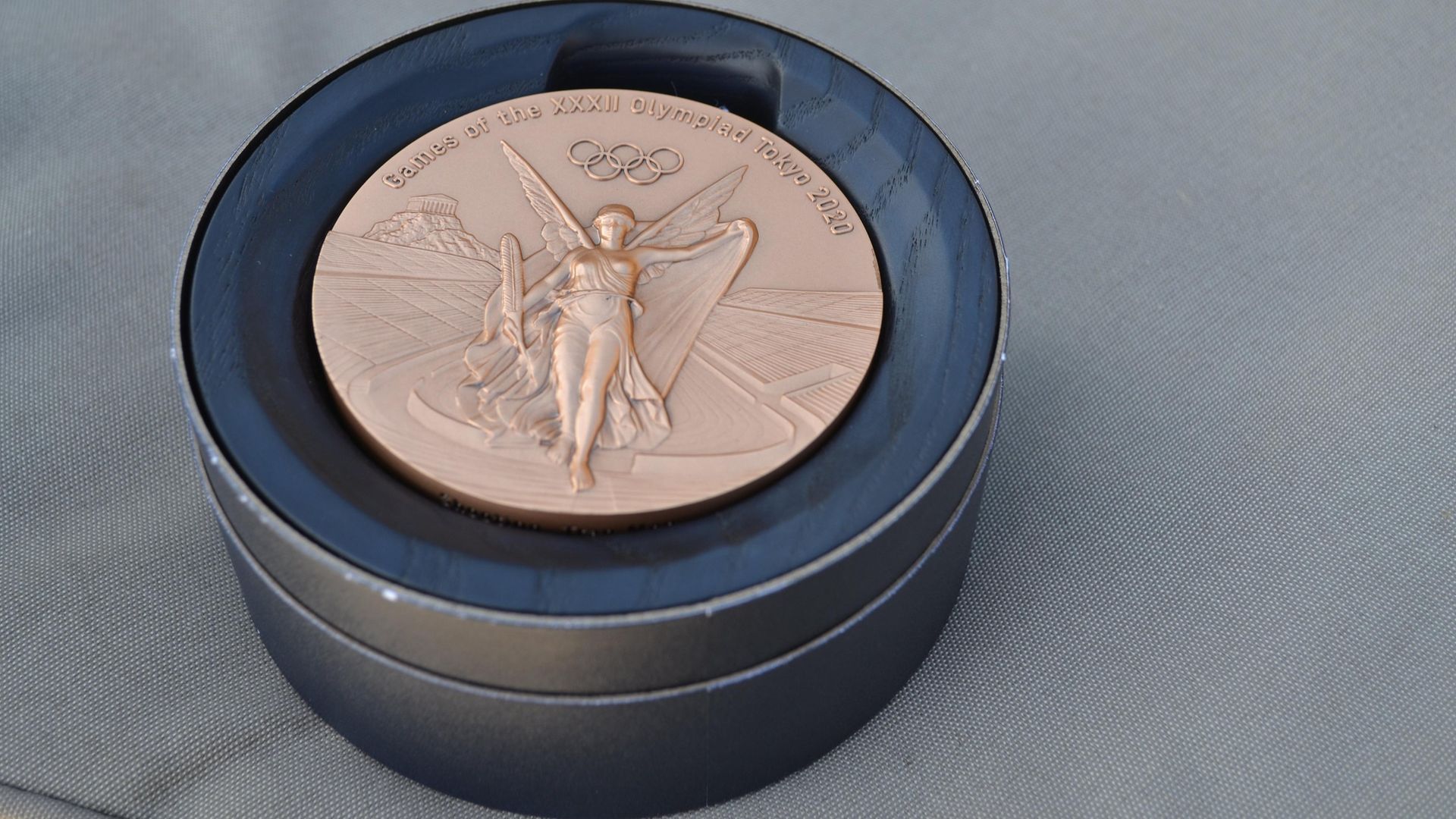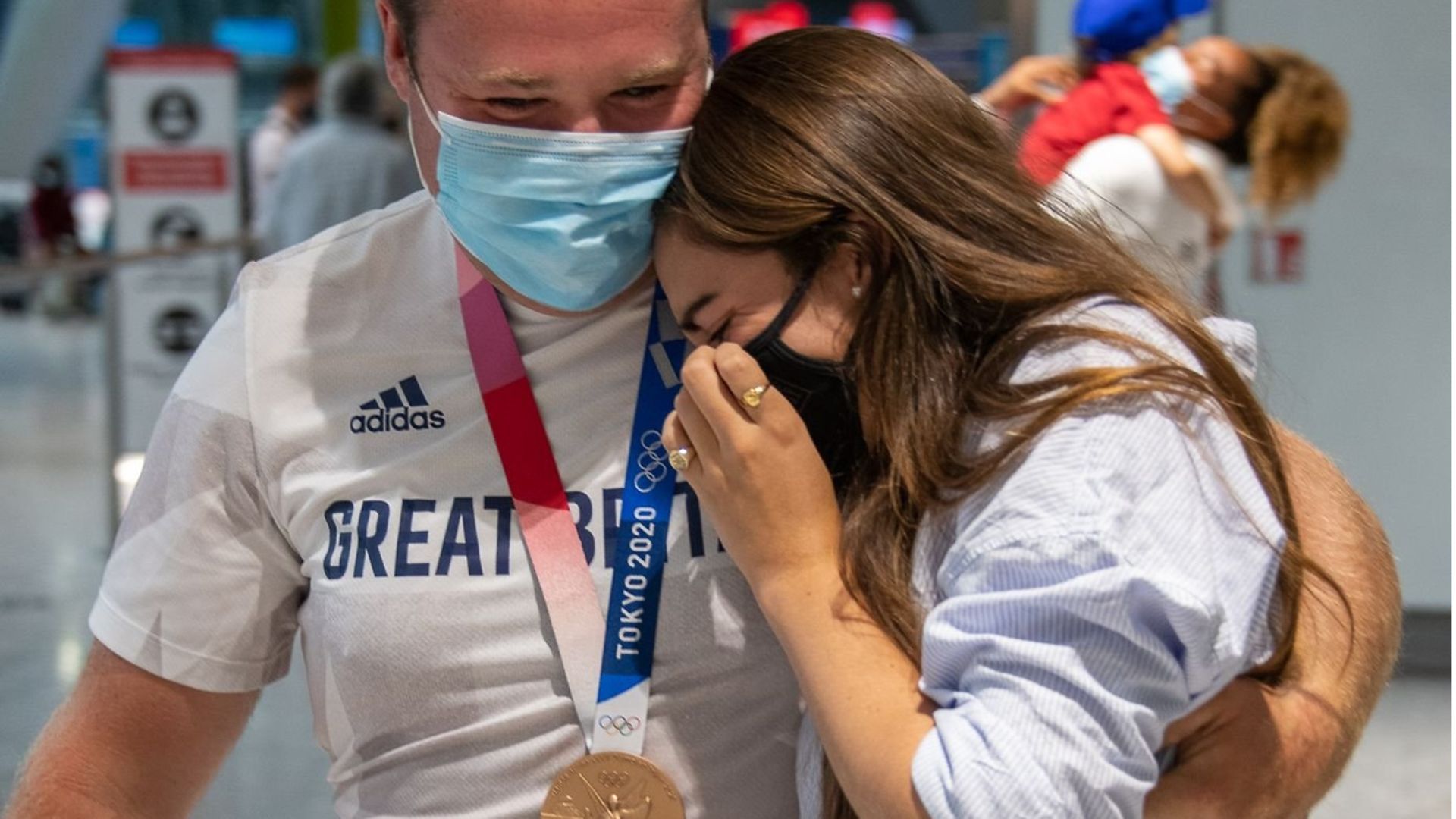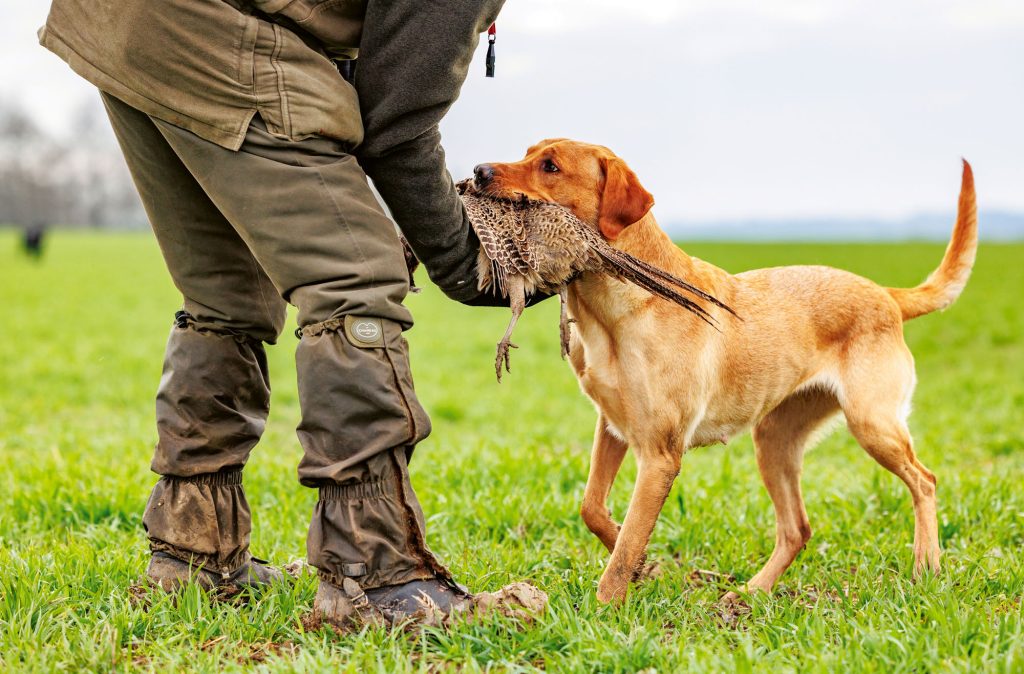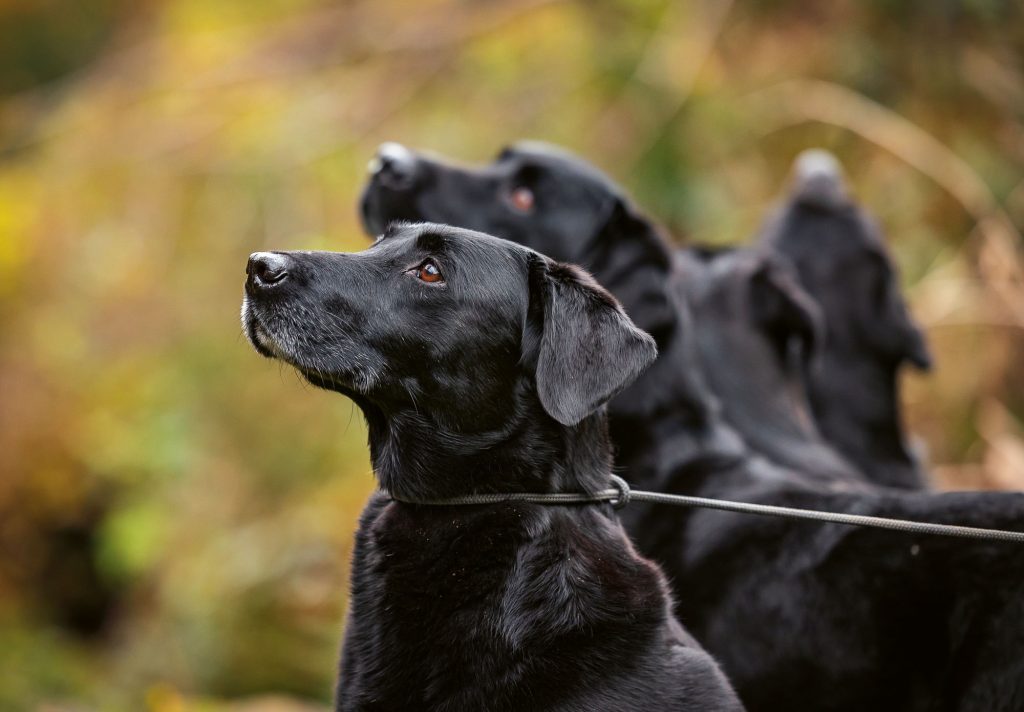Matthew Coward-Holley interview: 2021 Tokyo Olympics
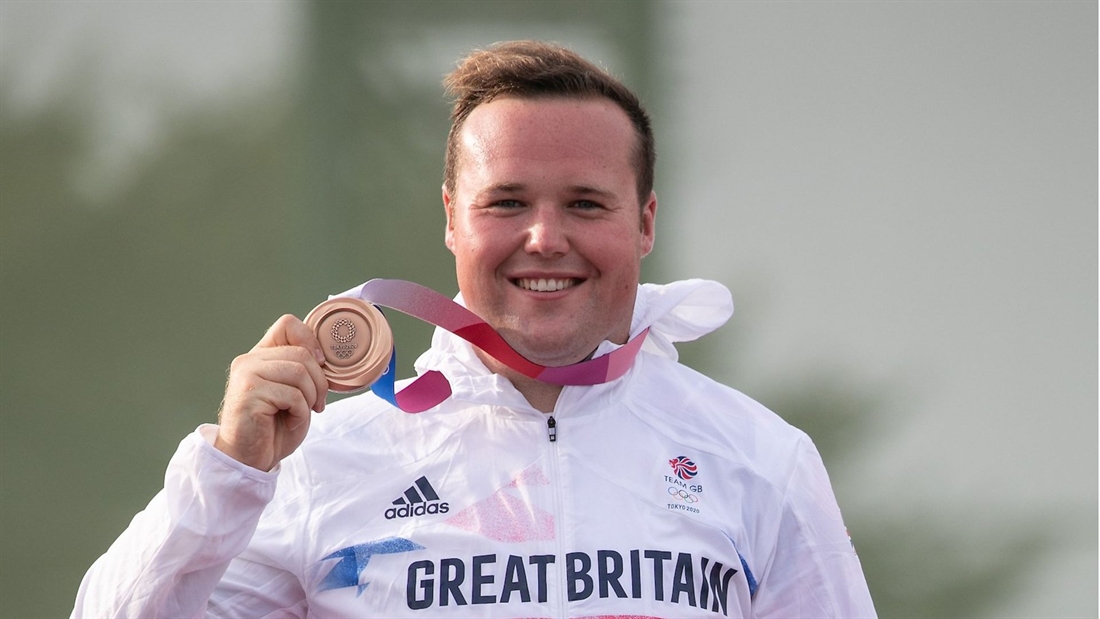
Emily Damment interviews Matt Coward-Holley on every detail of his 2021 Tokyo Olympic shooting experience, from getting to the Games to battling it out in the final!
I’ve interviewed Matt several times over the years, and I have to admit, he’s one of my favourites. The poise, control and level-headedness that make him such a dangerous competitor also make him a bloody lovely interviewee; he’s polite, concise, and refreshingly uninterested in gossip or politics. I think the best way to describe him is probably ‘zen’ – Matt’s very zen.
Of course, I was rooting for all three of our talented British shotgun shooters at the Tokyo Games, but I was extremely pleased when Matt bagged the bronze; I’ve seen the dedication he has for shooting, the sacrifices he’s made over these last few years, and the staggering consistency with which he performs, and I do think that medal was hugely well deserved.
Despite being the most in-demand guy in the business right now, we found a clear morning for me to head over to the home he shares with Augusta, his girlfriend and another top GB shooter, and talk about his experience in Tokyo. We covered everything, from how he coped with the pressure of the final, to where he keeps his medal. So, without further ado or ramblings, here is the interview you’ve all been waiting for!
CS: How are you feeling – are you still on cloud nine?
MCH: To be fair, it was a very weird mix of emotions after I’d finished. I was obviously very happy, but I was also very unsatisfied at the same time because I missed a couple of targets that I shouldn’t have missed, and that’s what cost me going through to the last two. So, I was over the moon to win a medal at my first Games, but at the same time I was left feeling a little bit empty. I went there to win, and I was shooting well enough in training and in the competition itself to do that.
CS: So even coming back with a bronze medal, you still felt like you could have done better?
MCH: Yeah exactly, I knew what I could have done. I mean, I recognise that for anyone to go to their first Olympic Games and win a medal is huge, but at the same time I wanted more and should have achieved more. So, when I came off the layout and I was sitting behind, part of me wanted to smile and part of me wanted to go mad!
There’s a picture that’s on Getty that just about sums up how I felt when I missed the target that would have tied me with the Czech guy that ended up winning [shows me a picture of himself looking absolutely devastated!]. Although it wouldn’t have made any difference in the long run, you don’t actually know that for sure. He didn’t miss any in that five, so that would have tied him with me, and I would have still gone out on bat number, but it might have put him under more pressure and caused him to miss. You never know…
CS: What’s the aftermath been like – have you been in non-stop interviews since you came back?
MCH: Since I’ve come back it’s been quite quiet actually. I had a lot when I was out there; the day after I had about six or seven hours straight through, and one late that evening. That was for the One Show I think, and of course because of the time difference we had to stay up and do it in the night in Tokyo.
Me and the lady who won the canoe medal were the only two to win medals that day which was quite nice actually, especially with shooting being a minority sport.
CS: So, talk us through the whole process. You land in Tokyo, then what happens?
MCH: We arrived in the airport, had our Covid tests done, and then you go through and have your accreditation printed. As always, there’s a little waiting around for the guns to come through security, but actually there was quite a lot of waiting for everyone in Tokyo due to waiting on Covid test results.
After we got the test results, it was onto the bus, which took us to the hotel in Yokahama City just outside Tokyo, where Team GB had a holding camp at the Intercontinental. We spent a night there just to recover and get some sleep.
The next day, we were taken to the Village, through all the security checks and what not. We were then taken down to Team GB House. We had a great position on the front of the base, so we probably had one of the best views of all the houses which was nice. Team GB was made up of around 370 athletes in total, so we weren’t sharing with any other countries.
CS: Did you get to mingle with any famous sporting stars while in the Village?
MCH: Yeah, we didn’t chat that much, but we bumped into lots of people. So, Andy Murray, Novak Djokovic, Tom Daley and all those people…
CS: Was he knitting?!
MCH: Yeah, actually he was doing a lot of knitting! But it’s really interesting to see people like Andy Murray walk around. He walks like he shouldn’t be able to run because his hips and knees are so stiff. We watched him come into the Village and he was literally hobbling! By the time he’s warmed up and played his match, he’s ready to go; it’s weird seeing that side of athletes of his calibre, who you usually only see in peak performance. You never usually see the human side.
At the opposite end of the spectrum, you have people like Sky Brown, who obviously goes everywhere with a support team because she’s so young… so you get to see both ends of the spectrum. It’s a weird and wonderful place to be.
CS: Was it hard not having your core support system around you, such as your family and girlfriend?
MCH: Yeah, it was difficult. We’d booked for everyone to go out – so my mum and dad, my girlfriend Augusta, and two of our best friends. It was a blow, but at the same time I was just so happy for it to be going ahead in any way, shape or form – I was happy just to have the chance to compete, considering everything that’s gone on this year. I did have my coach there because he was the head coach for another country, so I did have him for a bit more support.
CS: Did you take part in the opening ceremony?
MCH: No, we had the option to go, but we chose not to. If you’re wearing a mask, they didn’t class you as close contact, no matter how close you got to people. But we were only doing saliva tests, which aren’t the most accurate, so it would have only taken one slip-up to cost you 10 days in isolation and that’s your Games finished. So, that was the only reason. I think there was only 32 people who walked for Team GB out of about 300.
CS: You’re a very cool competitor, with a seemingly very good handle on your emotions; did the enormity of what you were doing hit you at any point?
MCH: In the final, there were a few more nerves. I was relatively calm in qualification, to be fair, but in the final it definitely hit me when I walked out and there’s no covers on the speakers where there had been, and the TV cameras are everywhere. There’s definitely a little bit more of that ‘wow, I’m in the Olympic final!’ sort of thinking! Yeah, I’d say that was the moment it hit me.
CS: Did you have a tactical plan going in, or was it always to just shoot the absolute best that you can?
MCH: For me, it was to do the job I’ve done before, and that I knew I could do. At the end of the day, it’s just another competition. Yes, it’s labelled the Olympics, but in my mind it’s almost a simpler competition to win.
Yes OK, you’ve got 20-something of
the world’s best that you’re up against, but there’s only 20 of you. You haven’t got 150 people, five of whom could have the day of their life and come through and make the final. You kind of know where everyone’s at; everyone there is capable of winning, but there’s less of you.
CS: What happened in qualifying and how did you feel during that phase?
MCH: I shot 123 out of 125, and I had to shoot my last 75 straight. I had a score in mind of what could make the final, but after the first day I realised that score was very wrong! The scores were really, really high across the board – men’s, women’s, mixed… they were astronomical. I shot 48 out of my first 50, and then I knew I couldn’t miss anymore, because if I did it would have meant a shoot-off. Which was exactly the case in the end – 123 took me straight into the final, while 122 was an eight- or nine-way shoot off for one spot.
I ended up having to shoot off for bib number, which I ended up winning; that went to 23 targets, so that was quite a long shoot-off with a Kuwaitee. There was four of us to start with, and it ended up just me and the Kuwaitee.
CS: That must have taken nerves of steel..!
MCH: Yeah, you really just have to trust in your process and trust that you know what you’re doing! You’ve just got to do the same thing over and over again, and if it’s wrong, put the gun down and start again, because it will cost you.
CS: How did it feel when you realised you’d won? I know we did touch on this at the start, but can you tell us more?
MCH: I was relieved when I realised I’d got through to the bronze section of the final, because before that it was touch and go between me and the Mexican guy, who started off like an absolute train in the final! It got to the point where I’d resigned myself to the fact that I was going to finish fourth, because he was shooting really well. He ended up missing his last three targets out; he actually only needed to miss one to let me through, if I didn’t miss any more, because I had a higher bib number than him.
As soon as I was through, I was relieved, but I did have my eye on finishing first… that’s when that picture I showed you earlier came through, that was in the next final and was a big right-hander that I missed I think, and that was the moment when I realised I was done… the other guy wasn’t going to miss two and at the time, David [Kostelecký, Czech Republic] was two or three ahead of us, so that was my final finished.
CS: So essentially, that picture was the moment you realised you’d won bronze!?
MCH: [Laughing] Yes actually, that was the moment!
CS: And then you thought about it a bit and realised it’s actually quite a good result?
MCH: There was that really weird mix of emotions I mentioned earlier when I went back to sit in my chair and wait for the final to finish; one half is extremely happy, the other half is left feeling quite empty. It was very weird, it’s something I’ve never experienced before, feeling-wise.
CS: What was it like returning home with your medal. Did you get a good welcome?
MCH: Yes, Augusta was waiting at the airport with my mum and dad, that was another great picture that the BA photographer took. They were all there waiting, and then the following Saturday I went up to visit my mum and dad and they had thrown a big party. I knew something was up because I could hear it as I approached… I think it was about 60 people or more that Augusta had organised along with my mum.
CS: Where do you keep the medal?
MCH: I think it’s on the side, just over there..! It’s moved round a fair bit as lots of people want to see it at the moment! It’s made of recycled foam or something – I was shocked how heavy it was when I picked it up to put it on, because of course due to Covid they didn’t do the medal presentation as they have previous years. It’s basically doing the rounds at the moment.
CS: What’s next for your career?
MCH: I think I’ve got one more competition this year, which is a World Cup final. I’m not shooting any more domestic competitions this year; I’m going to have a break and just do some training in the run-up to that, and then I’ll be back into training November/December time ready for Paris. Gold at Paris is the next goal!
CS: This might be difficult for you to answer, but what’s the main reason you feel that you have achieved what you have?
MCH: It’s hard work and dedication. I have missed a LOT of stuff, well WE [Augusta and I] have missed a lot of stuff, dedicating ourselves to shooting. If you want to be the best, you’ve got to throw everything you’ve got at it and be prepared to miss things you wouldn’t otherwise.
In the winter, we spend probably three weeks at a time out in Italy training, we come back home just to go back out again, so you’re back and forth a lot, then once the season starts you’re away just as much again. For me, you’ve got to be dedicated to what you want to do in order to get to the highest level. You only get out what you put in.
If you talk to any high-level athlete in any sport, they’ll say they’ve missed things they would never normally miss – family parties, weddings, even funerals – but you’ve got to do what you’ve got to do if you want to be the best. You either want it that badly, or you don’t.
CS: It must help that you and Augusta are both elite athletes in a similar situation?
MCH: Up until that picture was taken by BA at the airport, we’d seen each other for a week and a half in about 10 weeks! We kept missing each other by a few days – I’d be coming back from something just as Augusta was leaving for a competition or for training. Often it does line up, but we both agreed to put shooting first, and despite having the same trainer, we have very different goals and they won’t always line up. We won’t always be at the same competitions.
CS: When did you set your mind on the Olympics as a goal?
MCH: Oddly, the way I got into the Olympic disciplines in the first place wasn’t actually through my own doing. I was shooting Down The Line (DTL) originally, and John Belamy, who is now the Pathway coach, was the England DTL manager at the time I was shooting it. He used to shoot Double Trap for GB, and he said to me: “you need to shoot the Olympic disciplines, you’re wasted here, you can’t get to the Olympics”.
Initially, I was saying, “no I don’t really want to, I want to stay here,” you know, small fish, big pond! But he just insisted and told me I didn’t have a choice; he said he wouldn’t put me on the team any more unless I went and tried the Olympic discipline with him!
I tried Olympic Trap and Double Trap, and at the time I preferred Double Trap. That’s when I started looking at the Olympics. Once I’d shot Double Trap and I’d enjoyed it, I started thinking ok cool, I could get to the Olympics with this; right from then, that’s when it became a goal.
CS: What is your advice to anyone who has a goal they want to achieve?
MCH: No matter what level you’re shooting at, enjoy it. If you don’t enjoy it, you can’t dedicate the amount of time and effort to it that you need to.
The other one is to take advice from people you trust, because everyone and their man’s dog will give you advice; you need to have people that you listen to that you really trust to say, “this is what we’re doing, this is how we’re going to get there”. Those people are the ones that will help you to build the plan to get where you want. Yes, listen to other people, because they might have one useful bit of information, but have one person, or a small group, who you really trust and who you know you can rely on to get you to where you want to go.
Related Articles
Get the latest news delivered direct to your door
Subscribe to Sporting Gun
Subscribe to Sporting Gun magazine and immerse yourself in the world of clay, game and rough shooting. As the leading monthly publication for passionate shooters at all levels, Sporting Gun delivers expert advice, practical tips and in-depth reviews to enhance your skills and enjoyment of the sport.
With features ranging from gundog training to pigeon shooting, and wildfowling to equipment recommendations, you’ll gain valuable insights from professional shooters and industry experts. A subscription not only saves you money on the cover price but also includes £2 million Public Liability Insurance, covering the use of shotguns, rifles and airguns for both recreational and professional use.
